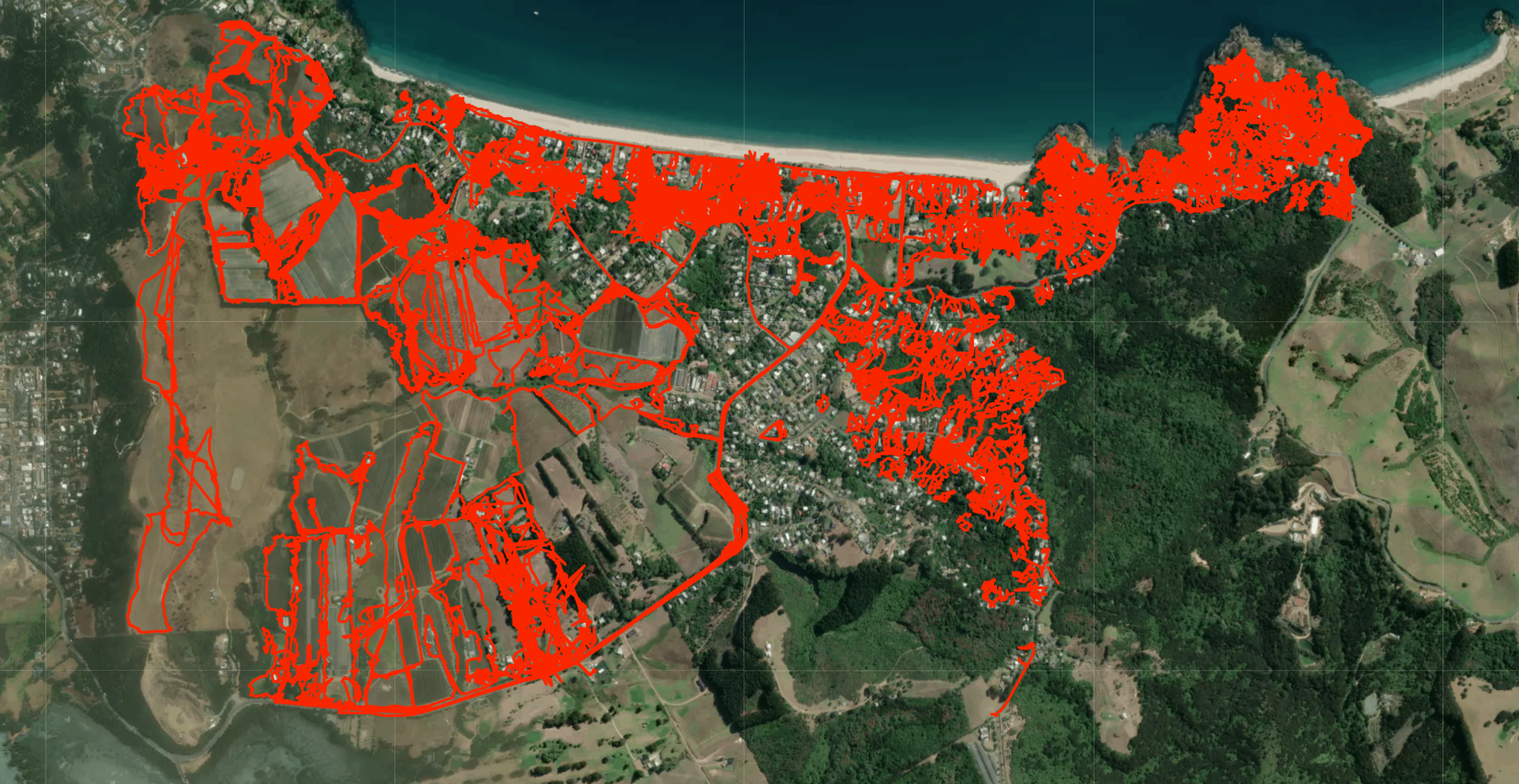
Clearing the Path: Our First Council Project Tackled Rhamnus and Built Community Trust
The Challenge: Confronting an Invasive Threat and Bridging a Local Gap
In October 2020, Free The Tree embarked on a significant and pivotal project with Auckland Council – our first major contract with them, an initiative that became a game-changer for our company. Auckland Council faced a pressing ecological issue: the spread of the invasive Rhamnus (Rhamnus alaternus), also known as Evergreen buckthorn or Italian buckthorn, a plant originating from the Mediterranean. This aggressive shrub and tree threatened native ecosystems over an estimated 500 hectares on Waiheke and Rakino Islands, impacting more than 1200 privately owned properties.
Council's challenges were specific:
A Local Need, A Local Solution: There was a pressing need for a Waiheke-based supplier who truly understood the local landscape and community dynamics, especially for a project so reliant on widespread community engagement and property access.
Strategic Containment: It was crucial to contain the Rhamnus infestation, which was prolific in the more densely populated western end of Waiheke Island, and prevent its spread to the ecologically sensitive and less densely populated eastern end, where it was still rare or non-existent.
The project demanded a multifaceted strategy. Not only did we need to find and control 100% of the Rhamnus, but we also had to navigate the complexities of gaining legal access to every property. Success hinged on genuine community engagement and meticulous record-keeping for post-control reports to landowners and the Waiheke Biosecurity Advisor.
Our Approach: Driving Success Through Expertise, Collaboration, and Community Focus
Despite the project's scale and the added complexities of fluctuating Covid-19 alert levels and varied property occupancy, our Free The Tree team embraced the challenge. We initiated our approach by:
Strategic Planning with Military Precision: Drawing on our military expertise, we plotted a containment strategy. This detailed planning was instrumental in helping Auckland Council establish a clear and effective budget for the programme.
Meeting Rigorous Standards: Before commencing work, we completed Auckland Council's comprehensive health and safety pre-qualification standards and met all insurance requirements. These were essential building blocks, not only securing this foundational project but also paving the way for future collaborations.
Building a Dedicated Local Team: We recruited, equipped, and trained a skilled, local team of six, empowering them to tackle the diverse terrain and challenges ahead with an understanding of the island's unique environment.
Fostering Community Partnerships: Knowing that landowner cooperation was key, we engaged the Onetangi community, including two residents' associations and numerous vineyard owners. Our open communication and respectful approach built crucial bridges and fostered trust.
Seamless Coordination: The project required a high degree of collaboration. We coordinated our efforts with specialist Ropes Access teams and arborists from separate suppliers, forging a unified and efficient strategy for often complex sites.
Innovative Data Management: To manage the vast flow of information, track legal access permissions, map the project's progress, and ensure accurate reporting to the Waiheke Biosecurity Advisor, we developed and implemented a comprehensive database management system. This bespoke system supplemented Auckland Council’s existing frameworks and proved crucial for the project's smooth execution.
Earning Continued Trust and Expanding Scope: We managed this large-scale programme through its initial phase in 2021. Based on the success of this initial work and the positive impact achieved, Auckland Council awarded Free The Tree a second contract with 2022 funding. This exciting development allowed us to extend the Rhamnus containment programme to Rakino Island, further demonstrating Council’s confidence in our capabilities while we navigated operational challenges and progressed our work on other public and private projects.
Key Outcomes & Impact: Delivering a Greener Future and Enhancing Council's Reputation
Our team's dedication, negotiation skills, and unwavering commitment to safe, professional conduct on every property produced remarkable results:
Exceptional Access: We achieved a property entry rate of over 99%, a direct result of the trust we built with landowners across Waiheke and Rakino.
Effective Control: We located and controlled 100% of the Rhamnus alaternus identified within the project scope.
Valuable Ecological Data: Beyond the primary target, our meticulous fieldwork delivered additional benefits to Auckland Council. While controlling Rhamnus, our team also identified and mapped the locations of other invasive plant species and noted significant native plants and trees that warrant future protection efforts.
Minimal Disruption: Our commitment to quality and landowner satisfaction meant we received only two minor complaints over the entire 15-month intensive period.
Strengthening Council's Local Connection: Crucially, our work enhanced Auckland Council’s reputation on Waiheke and Rakino Islands. As a local supplier, we delivered a vital service tailored to local needs, strengthening the connection between Council and the island communities.
A Foundation for Growth: This project was more than just a contract; it provided a foundational experience that shaped Free The Tree. We showcased our capability to manage large-scale, complex ecological restoration projects, solidifying our role as a trusted partner in protecting Aotearoa's natural heritage.






